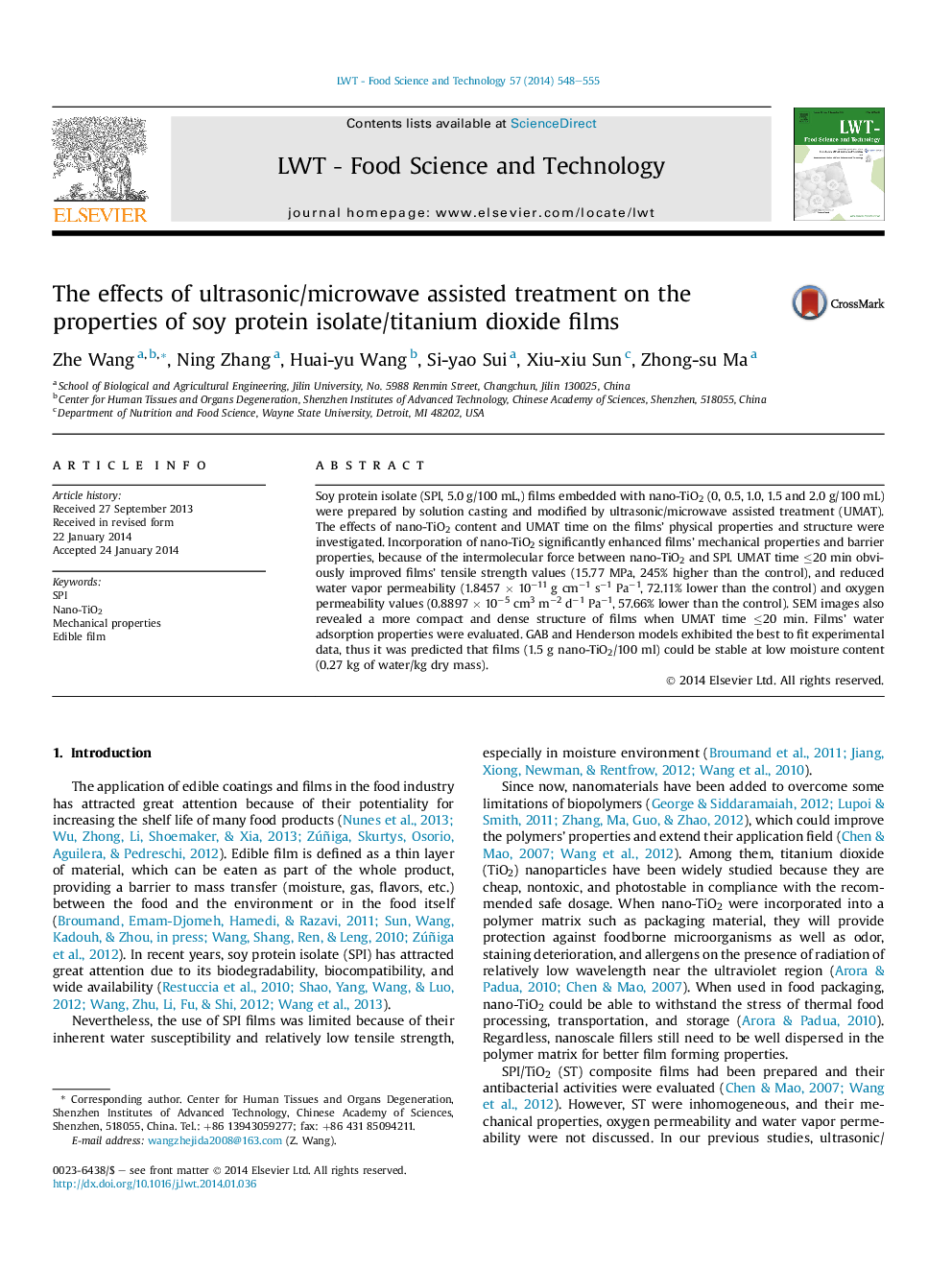| Article ID | Journal | Published Year | Pages | File Type |
|---|---|---|---|---|
| 6403378 | LWT - Food Science and Technology | 2014 | 8 Pages |
â¢Soy protein isolate/titanium dioxide (SPI/TiO2) films were prepared.â¢TiO2 nanoparticles improved SPI-based films' properties.â¢Ultrasonic/microwave assisted treatment improved films' properties.â¢GAB and Henderson models fit best with films sorption isotherms.
Soy protein isolate (SPI, 5.0 g/100 mL,) films embedded with nano-TiO2 (0, 0.5, 1.0, 1.5 and 2.0 g/100 mL) were prepared by solution casting and modified by ultrasonic/microwave assisted treatment (UMAT). The effects of nano-TiO2 content and UMAT time on the films' physical properties and structure were investigated. Incorporation of nano-TiO2 significantly enhanced films' mechanical properties and barrier properties, because of the intermolecular force between nano-TiO2 and SPI. UMAT time â¤20 min obviously improved films' tensile strength values (15.77 MPa, 245% higher than the control), and reduced water vapor permeability (1.8457 Ã 10â11 g cmâ1 sâ1 Paâ1, 72.11% lower than the control) and oxygen permeability values (0.8897 Ã 10â5 cm3 mâ2 dâ1 Paâ1, 57.66% lower than the control). SEM images also revealed a more compact and dense structure of films when UMAT time â¤20 min. Films' water adsorption properties were evaluated. GAB and Henderson models exhibited the best to fit experimental data, thus it was predicted that films (1.5 g nano-TiO2/100 ml) could be stable at low moisture content (0.27 kg of water/kg dry mass).
